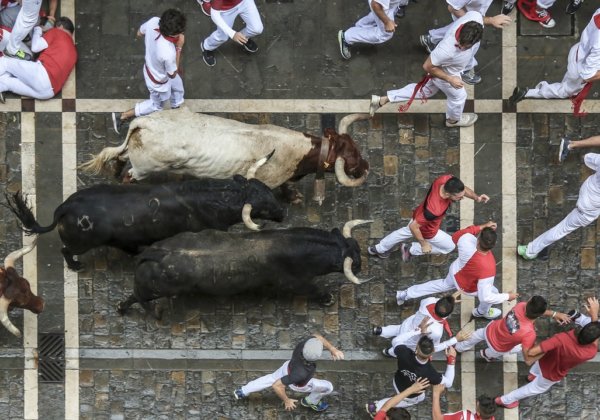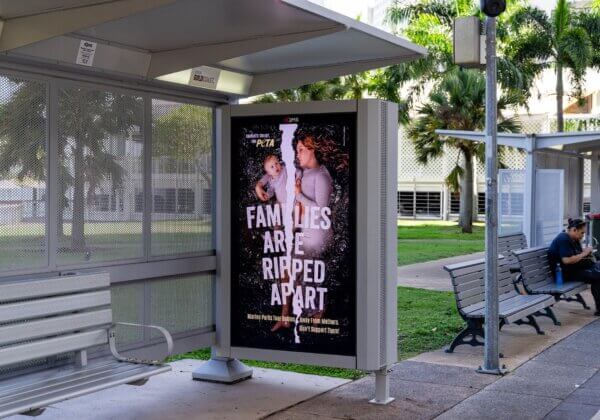Horses Injured for Melbourne Cup Carnival
A horse named Rejuvenated was killed after being injured when she fell on the track at Flemington during training on the eve of the Melbourne Cup Carnival. She was only 2 years old.
Three more horses – Gold Trip, Right You Are, and Alenquer – also showed signs of injury after they were forced to race in the disgrace that stops the nation.
The world is waiting to see how these horses’ injuries are treated. Meanwhile, PETA is calling for an immediate investigation into Rejuvenated’s death and for her veterinary records to be released. While the abusive horse racing industry glosses over the bleeding lungs, broken bones, and horrific deaths it causes, it cannot hide the fact that horses are made to run to the detriment of their health.
 Flemington Racecourse / YouTube
Flemington Racecourse / YouTube
Why the Melbourne Cup Carnival Is a Disgrace
Death in horse racing is common – both on and off the track. At least 168 horses died on the track in the past racing year, and in 2019, ABC’s 7.30 programme revealed that around 300 horses used for racing went through a single abattoir in Queensland in just 22 days.
Horses exploited for racing are bred in the hope that their offspring will be fast – and often this comes at the expense of good health. Many don’t even make it to a racetrack and are discarded as “wastage”. Bred for speed at the expense of bone mass and general well-being, horses are increasingly less robust and are pushed in races far beyond their natural capacity. It’s common for horses used in races to develop debilitating medical conditions, including bleeding lungs, ringbone, and gastric ulcers. Heart attacks and fatal injuries, including broken necks, backs, and legs, are also commonplace.
Investigations Into the Racing Industry
When horses are no longer profitable for the industry, they often end up at knackeries. A 2020 investigation by Farm Transparency Project followed the fate of horses in two Sydney knackeries, where hidden cameras captured their slaughter and sale as food for companion animals. Many of the horses seen there were officially listed as “retired” on the Racing Australia website.
Australian horses exported overseas for racing can also end up in abattoirs. A PETA exposé revealed that Australian horses sold to the South Korean racing industry usually end up being slaughtered for meat. Even the stallion Street Cry – who sired Australian racing legend Winx – fathered a foal who was killed for meat in South Korea.
How You Can Help
Sponsors fund much of the expense of race day, which is why we need you to tell companies to drop their Melbourne Cup sponsorship now:







